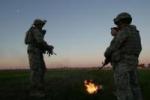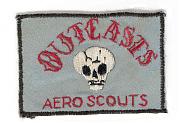I've been reading some politics lately (yes, that's my first mistake!) and it seems apparent to me that there is a huge difference in what people of different political stripes think is the "surge." This definitional difference seems to be at the heart of disagreements over whether it has "worked" or not. Those disagreements go on to buttress basic policy differences.
So, to the professionals here, many of which I'm sure were either involved in planning and/or executing the "surge," what does it mean to you? Is there a commonly-accepted definition? I've always considered it much more than the simple addition of more forces but have never been completely sure myself what is "surge" and what is not. Is the surge something the military should provide a precise definition for (assuming there isn't one already that I've somehow missed)? Am I an idiot for asking these probably loaded questions in this forum?







 "A Sherman can give you a very nice... edge."- Oddball,
"A Sherman can give you a very nice... edge."- Oddball, 










Bookmarks